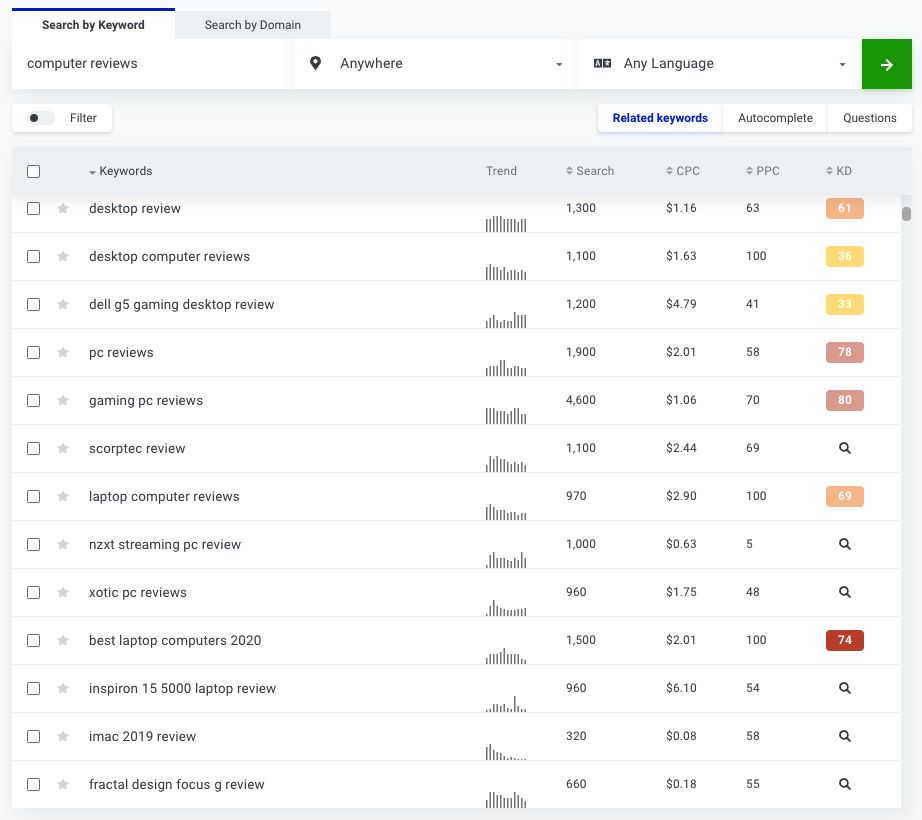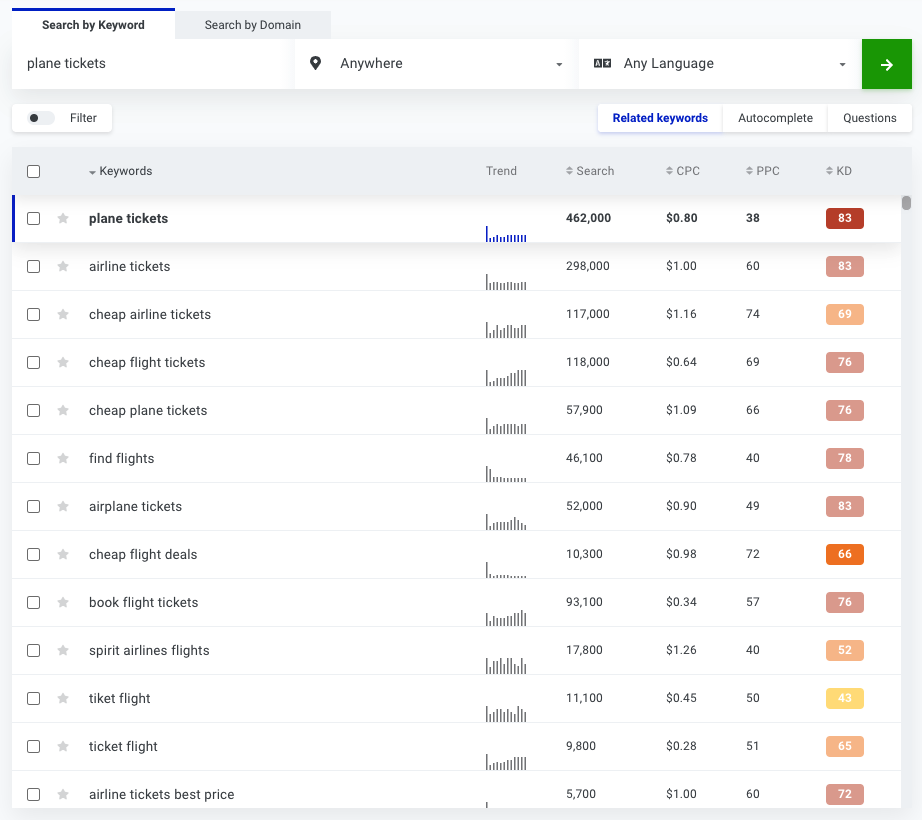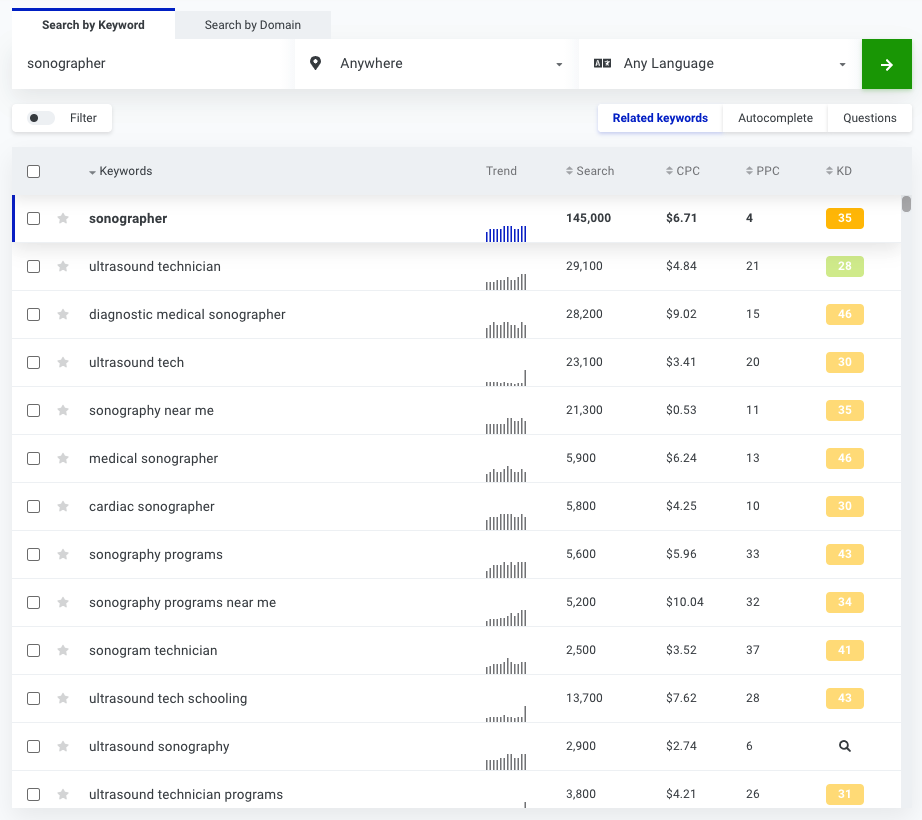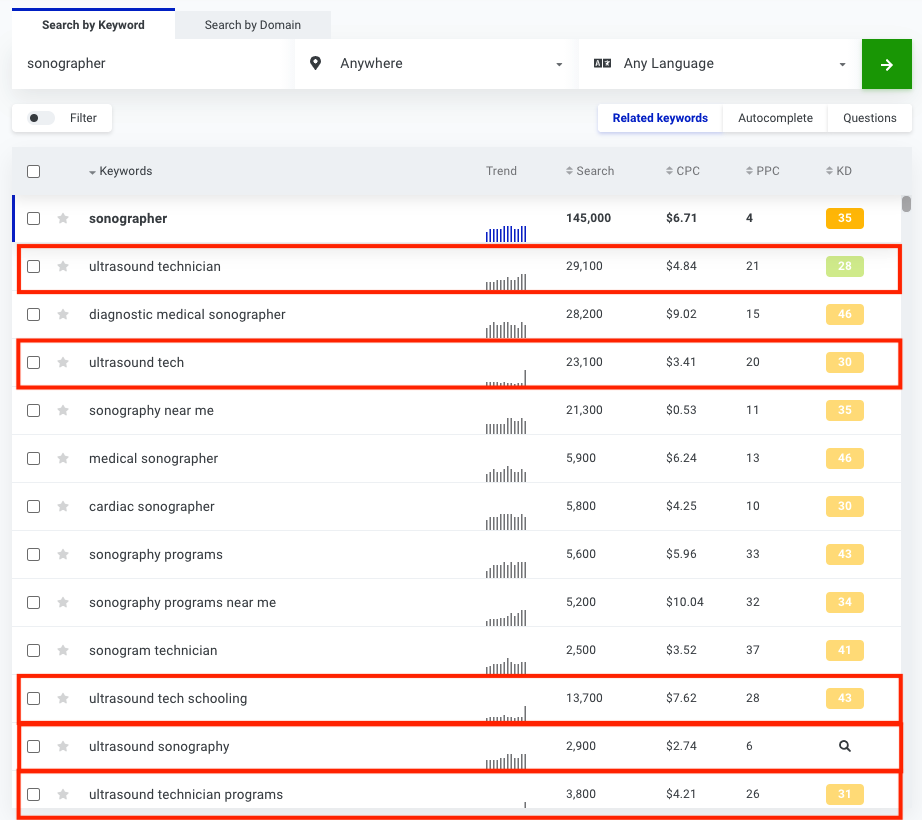From a content marketing perspective, keyword research is often used once a topic has been identified to make sure that high-volume keywords are incorporated into a post or page.
But there’s so much more that keyword research can accomplish for content marketers. Rather than just choosing topics and researching keywords to build out posts, keyword research can be used to identify new audiences, find content opportunities, identify semantic keywords, and more.
Keyword Research to Identify New Audiences
Keyword research shows you what people are searching for. This is helpful when identifying topics to create content around, but it can also be helpful in identifying who you should be talking to.
Let’s say your website focuses on technology reviews, including computer reviews. By searching the keyword “computer reviews,” you can get an idea of what the most popular phrases are.

You could’ve guessed many of these terms. “Desktop computer reviews,” “laptop computer reviews,” and “gaming pc reviews” likely won’t come as a surprise. But the fact that more specific gaming computers, like “dell g5 gaming desktop review” and “xotic pc reviews” give you a good indication that if you cover gaming laptops, these two are more likely to be searched. Meaning: you should probably include them in your post.
With just a little keyword research around a very broad term, you’d be able to identify that seniors are a strong audience for computer reviews, which means you now have a new opportunity to create content for an audience you previously weren’t serving.
Keyword Research to Identify Topics
Sometimes, coming up with great topics to create and market content around is a struggle. By using keyword research, you can uncover topics you might not have thought of otherwise.
Let’s say you have a website that focuses on traveling. Plane tickets will likely be a broad topic to cover, but you can’t just write about plane tickets in general. By doing keyword research around “plane tickets,” you can quickly see what kind of plane tickets people are interested in.

After some research, you can see cheap tickets/prices and some specific airlines are the most popular search terms. This is a great place to start focusing some of your content marketing efforts, as these types of posts will appeal to what the audience is looking for most.
Keyword Research to Verify Interest
Another useful way for content marketers to utilize keyword research is to validate that upcoming content marketing plans have an audience. Whether a topic suggestion is made at the request of someone at the company, developed in a brainstorming session, or requested by a client, doing some basic keyword research will ensure there’s search volume for the topic and that time won’t be spent creating content around something people don’t care about.
Keyword Research to Identify Semantic Keywords
With content marketing and SEO working side by side, it’s important for those executing the content to have a strong grip on the best keywords to target as they develop their content.
As we’ve mentioned before, keywords aren’t everything in content marketing, but they are something content developers should be able to execute on. When researching for a specific page or post, finding both long-tail keywords containing the phrase you’re targeting and similar keywords that build semantic relevance will help to build a more complete, optimized piece.
For example, if you’re creating content around the term “sonographer,” keyword research shows that “diagnostic medical sonographer” and “medical sonographer” are both frequently searched and contain the phrase that’s being targeted.

In addition, “ultrasound technician” is the most popular phrase used when searching for this topic.

Having an understanding of which keywords are most important within a space will arm content creators with the ammunition they need to properly optimize the pieces they’re working on.
Though keyword research is often associated directly with SEO, content marketers can benefit in multiple ways by using it throughout the entire process of content creation. Not only will it act as a tool to help create more focused content for a strong audience, but it also helps to make sure any content marketing efforts are working toward SEO goals as well.
All keyword research in the examples shown were researched through SEM Rush.



